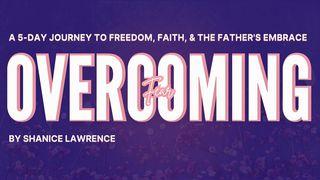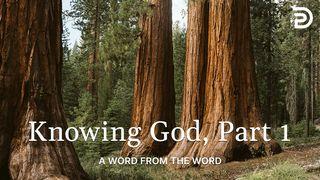Delve Into The ProphetsSample

DAY 23 – JONAH PART II
Biblical scholars offer varying estimates of when the book of Jonah was written. It does relate several significant episodes from the life of a prophet who lived in the eighth century BC. But these episodes may actually be related in order to speak to the situation of a later generation. In the book, Jonah seems to represent the attitude that many of the people of Israel took at various times toward other nations. Instead of recognizing their mission to help these nations come to know the true God, they considered them their enemies and expected God to destroy them. And so God’s question to Jonah at the end of the book – “Should I not have concern for the great city of Nineveh?’ – is also being posed to any readers who share Judah’s hostile attitude.
This suggests that Jonah may represent Israel more generally in the book. God did tell some of the other prophets to act out signs in which they represented their nation. For example, Ezekiel lived on rationed food to show that Jerusalem would come under siege. The difference here is that when Jonah flees from Nineveh and then resents the way God spares the city, he’s not acting in obedience to any instructions from God. Nevertheless, if Jonah does represent Israel, then his experience of being swallowed by the great fish may have an additional symbolic meaning that can help us get a general idea of the book’s date. Even when he’s still “inside the fish,” Jonah sings a song of thanksgiving, which is the centerpiece of the book. While he isn’t yet safe on dry land, he’s already been delivered from “the engulfing waters.” This may indicate that the book’s author and audience are in exile: they’re not yet back in their own land, but they’ve been spared from destruction. On the other hand, Jonah’s argument with God, in which the book’s message is heard most clearly, takes place after he’s back on dry land. Once again, if Jonah is playing a symbolic role, this may suggest that the book was written after the return from exile.
But we don’t need to know exactly when the book was written in order to appreciate its message. The people of God in all places and times have a special mission to help others come to know the true God. They shouldn’t see those outside the community of believers as their enemies and expect God to trample them down before them. Instead, they should rejoice in—and certainly not resent—the fact that they serve “a gracious and compassionate God, slow to anger and abounding in love, a God who relents from sending calamity,” as Jonah says.
PRAYER: You are slow to anger and rich in love. Thank You for revealing Yourself to us in Your Word.
Scripture
About this Plan

The Old Testament of the Bible is broken into three major sections, the second of which is known as the Prophets. If you didn’t know that, imagine all of the other interesting things you’ll learn in this reading plan as you explore the purpose, context, and background of this fascinating and unique part of God’s Word.
More
We would like to thank Biblica for providing this plan. For more information, please visit: http://www.biblica.com
Related Plans

From Need to Maturity

Parenting Through God’s Lens: Seeing Your Child the Way God Does

The Generosity Practice

Ruth: A Redeemer Who Fills All Emptiness | Video Devotional

An Encounter With Jesus

Grace for Your Pace - How to Burn on Instead of Burn Out

Overcoming Fear: A 5-Day Journey to Freedom, Faith, and the Father’s Embrace

Imposter Syndrome: You Are Who God Says You Are

A Word From the Word - Knowing God, Part 1
